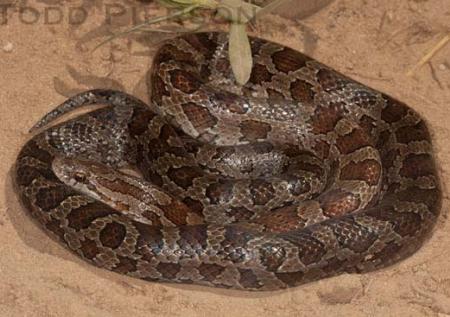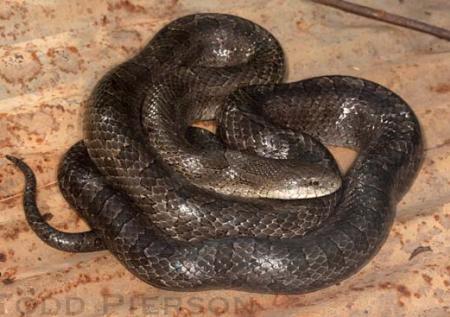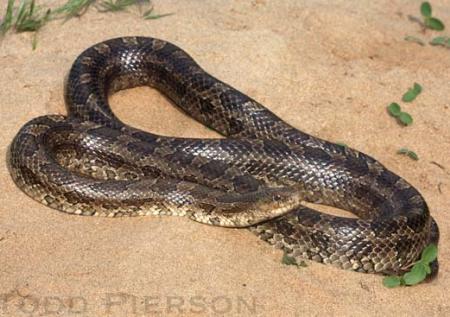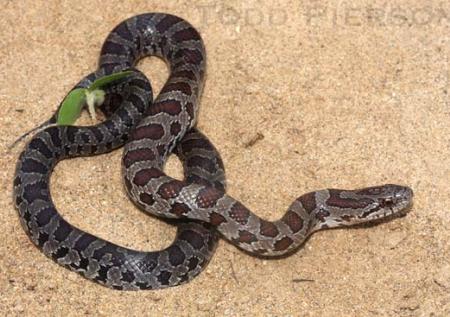Yellow-bellied or Prairie Kingsnake (Lampropeltis calligaster)

Click a thumbnail below to view the larger image:





Have you seen a Yellow-bellied or Prairie Kingsnake?
Click the Report Snake button below to reporting seeing a Yellow-bellied or Prairie Kingsnake.
Report Snake SightingAppearance
Yellow-bellied or Prairie Kingsnakes are moderately sized snakes with a brown-gray back. Brown to reddish blotches, which are outlined in black, run down the length of the back and onto the sides of the body. Their bellies are light with a brownish blotching pattern. Their head is not very distinct from their neck. Babies are often more boldly patterned than the adults. The scales are smooth and they have a single anal plate.
Size
Prairie Kingsnakes are typically 2 to 3.5 feet in total length.
Habitat/Range
Prairie Kingsnakes are found in the western half of Kentucky, although they are missing from some parts of the western coalfields. This species prefers grasslands, old fields, pastures and open woodlands.
Natural History
Prairie Kingsnakes are secretive and partially fossorial, spending a good deal of time within mammal burrows and other underground passages. Mating occurs in the spring, eggs are laid in the summer and babies can be found in late summer and early fall. Prairie Kingsnakes eat small mammals and reptiles, which they kill by constriction. Similar to Black Kingsnakes, Prairie Kingsnakes are also immune to the venom of pit vipers. They are eaten by mammals, Black Kingsnakes and birds of prey.
Notes/Miscellaneous
Prairie Kingsnakes will vibrate their tails, release musk and bite if captured. They are nonvenomous and harmless to humans.
